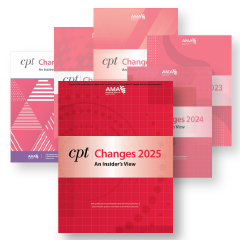by Find-A-Code™
Jul 20th, 2022
Medical billing codes dominate your day. They are the raw ingredients you use to do your job. But they are more than just numbers on an electronic form. They are also the life blood of the healthcare industry's billing capabilities. Therefore, accuracy is non-negotiable.
Accurate coding is the key to your job. It represents your job security as well as your ability to maximize earnings. If you are not accurate, a steady stream of work may be fleeting. But you can only be as accurate as the information you have. Therefore, you need to be able to trust your sources of medical billing codes. That is where we come in.
3 Primary Coding Manuals
As you know, medical coding is the process of converting data relating to medical procedures, medications, etc. into numerical codes used by insurance companies to pay claims. Reimbursements to doctors, hospitals, and manufacturers are based on the codes provided. Just knowing that much makes it easier to understand why accurate coding is so important.
As a medical billing specialist, you have three primary code sets and accompanying manuals from which to glean your information:
● International Classification of Diseases, 10th Revision - Clinical Modification (ICD-10-CM) – for diagnosis codes
● Current Procedural Terminology (CPT) – for procedures and services
● Healthcare Common Procedural Coding System (HCPCS) – for procedures, supplies and quality measures not included in the CPT codeset.
The point of the coding system is to allow health insurance companies to look at a bill and quickly understand what it represents. For example, an insurance company wants to know – at a glance – that a specific procedure was offered in the doctor's office. Codes make that possible.
Accuracy Affects Efficiency
Accuracy is critical to what you do because it directly affects efficiency. Consider a local primary care office. Every member of the team – including doctors, nurses, and support staff – expect to be paid on time. They are all depending on timely insurance reimbursements to maintain the cash flow their paychecks require.
Efficiency keeps payments coming on schedule. It allows for timely reimbursements. Efficiency eliminates much of the redundancy that otherwise slows down medical billing and payments. But it all rides on accurate medical billing codes.
Accuracy Affects Reimbursements
Along those same lines, accuracy affects every reimbursement an insurance company pays out. If medical billing codes are inaccurate, the reimbursements related to them will also be inaccurate. A healthcare provider might not receive full payment for services rendered. Coding inaccuracy could also result in an overpayment.
Erring on either side only makes it more difficult for providers and payers to settle up. Both parties rely on accurate medical billing codes to guarantee accurate payments.
Not Always Black and White
As a medical billing specialist, you know that things are not always black-and-white. Sometimes you don't know what medical billing codes to apply to a particular patient visit. You are left to search through multiple codes only to make your best guess in the end. That is part of the job.
Unfortunately, medical billing isn't an exact science. There are numerous procedures that do not have iron-clad codes assigned to them. Then there are differences between the codes that medical devices and pharmaceutical manufacturers utilize. Finally, medical coders are sometimes forced to guess a provider's intent at the time a bill was prepared.
All of this is to say that you have a lot of things working against you as you strive for coding accuracy. We are here to make your job easier. By providing a single online location for looking up medical billing codes, we eliminate some of the unnecessary leg work that could otherwise impact your accuracy. Give Find-A-Code a try.


 Quick, Current, Complete - www.findacode.com
Quick, Current, Complete - www.findacode.com